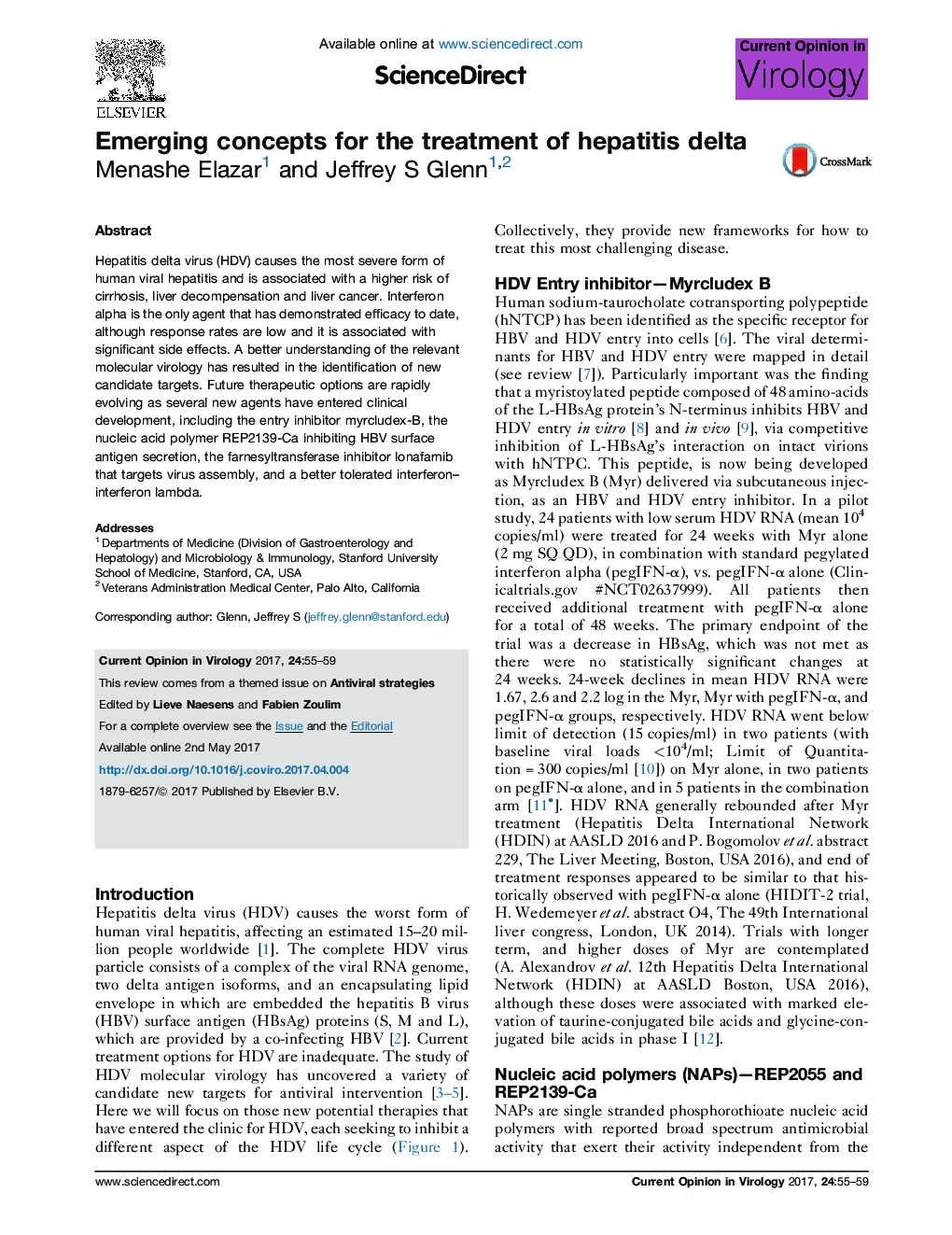| Article ID | Journal | Published Year | Pages | File Type |
|---|---|---|---|---|
| 5546214 | Current Opinion in Virology | 2017 | 5 Pages |
â¢Several new approaches for treating HDV have entered the clinic.â¢The entry inhibitor Myrcludex-B shows HDV inhibition in first pilot study.â¢The first study of the NAP REP2139-Ca reports profound drops in HBsAg and HDV.â¢The oral prenylation inhibitor lonafarnib inhibits HDV in multiple studies.
Hepatitis delta virus (HDV) causes the most severe form of human viral hepatitis and is associated with a higher risk of cirrhosis, liver decompensation and liver cancer. Interferon alpha is the only agent that has demonstrated efficacy to date, although response rates are low and it is associated with significant side effects. A better understanding of the relevant molecular virology has resulted in the identification of new candidate targets. Future therapeutic options are rapidly evolving as several new agents have entered clinical development, including the entry inhibitor myrcludex-B, the nucleic acid polymer REP2139-Ca inhibiting HBV surface antigen secretion, the farnesyltransferase inhibitor lonafarnib that targets virus assembly, and a better tolerated interferon-interferon lambda.
